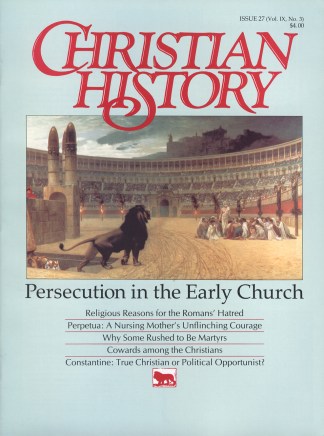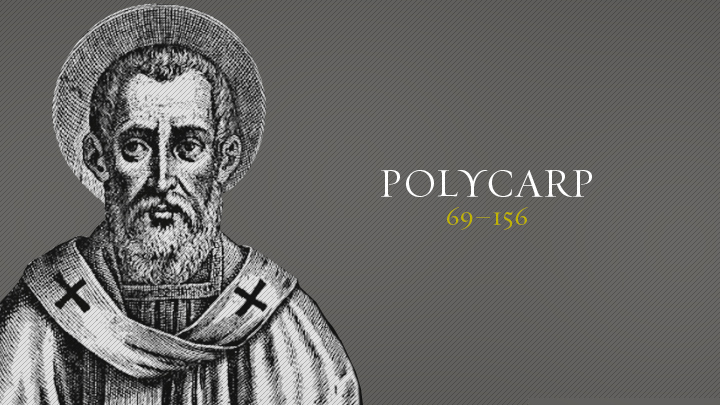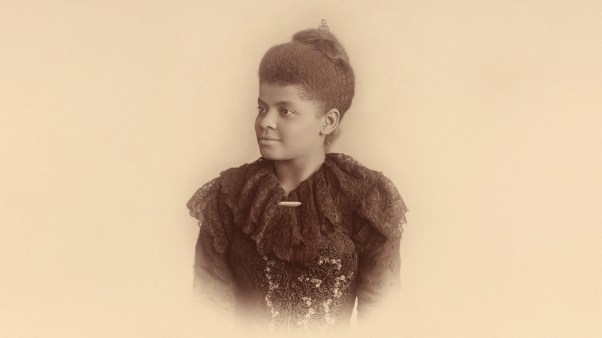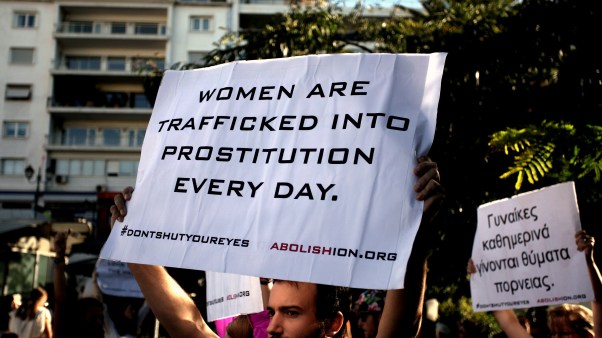"He who grants me to endure the fire will enable me also to remain on the pyre unmoved, without the security you desire from nails."
Polycarp had been a Christian since he was a child, but the Romans didn't get around to killing him until he was in his eighties. Whatever the reason for the delay, it is still the first recorded martyrdom in post-New Testament church history.
Uneducated but direct
He lived during the most formative era of the church, at the end of the age of the original apostles, when the church was making the critical transition to the second generation of believers. Tradition has it that he was personally discipled by the apostle John and that he was appointed as bishop of Smyrna (in modern Izmir in Turkey) by some of the original apostles.
In his later years, he tried to settle disputes about the date to celebrate Easter, and he confronted one of the church's most troublesome heretics, the Gnostic Marcion, calling him "the first born of Satan," when he ran into him in Rome. Polycarp was also responsible for converting many from Gnosticism. His only existing writing, a pastoral letter to the church at Philippi, shows he had little formal education, and was unpretentious, humble, and direct.
Such traits are especially evident in the account of his martyrdom, which was written within a year of his death. It is not clear exactly why he was suddenly, at age 86, subject to arrest, but when he heard Roman officials were intent on arresting him, he decided to wait for them at home. Panic-stricken friends pleaded with him to flee, so to calm them, he finally agreed to withdraw to a small estate outside of town. But while in prayer there, he received some sort of vision. Whatever he saw or heard, we don't know. He simply reported to his friends that he now understood, "I must be burned alive."
Timeline |
|
|
48 |
Council of Jerusalem |
|
57 |
Paul's Letter To The Romans |
|
65 |
Peter and Paul Executed |
|
69 |
Polycarp born |
|
156 |
Polycarp dies |
|
168 |
Martyrdom of Justin Martyr |
Roman soldiers eventually discovered Polycarp's whereabouts and came to his door. When his friends urged him to run, Polycarp replied, "God's will be done," and he let the soldiers in.
He was escorted to the local proconsul, Statius Quadratus, who interrogated him in front of a crowd of curious onlookers. Polycarp seemed unfazed by the interrogation; he carried on a witty dialogue with Quadratus until Quadratus lost his temper and threatened Polycarp: he'd be thrown to wild beasts, he'd be burned at the stake, and so on. Polycarp just told Quadratus that while the proconsul's fire lasts but a little while, the fires of judgment ("reserved for the ungodly," he slyly added) cannot be quenched. Polycarp concluded, "But why do you delay? Come, do what you will."
Soldiers then grabbed him to nail him to a stake, but Polycarp stopped them: "Leave me as I am. For he who grants me to endure the fire will enable me also to remain on the pyre unmoved, without the security you desire from nails." He prayed aloud, the fire was lit, and his flesh was consumed. The chronicler of this martyrdom said it was "not as burning flesh but as bread baking or as gold and silver refined in a furnace."
The account concluded by saying that Polycarp's death was remembered by "everyone"—"he is even spoken of by the heathen in every place."
Corresponding Issue











